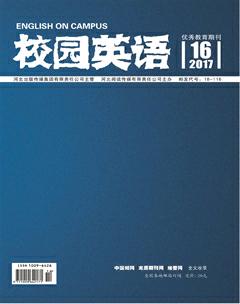Reflections on Buddhist Translation Discourse
何倩
In the history of China, translation has been crucial to the introduction of western learning and the making of national culture in China. Compared with the history of translation in the west, China has an over five thousand-year history of human civilization and a three thousand-year history of translation. It was during the Han dynasty that translation became a medium for the dissemination of foreign learning.
The translation of Buddhist sutras originated from the Han Dynasty and the Wei Dynasty, flourishing in the Sui Dynasty and the Tang Dynasty and continued to the Song Dynasty and the Yuan Dynasty. It influenced religion, literature, painting, sculpture, music and many other fields deeply. It can be said that it is not only the grand occasion in the history of Chinese culture, it is also second to none in the history of world culture.
The qualification for translation during that period was slowly developed. Buddhist monks in Tang Dynasty thought that translators should: “(1) be faithful to the Buddhist doctrine, (2) be ready to benefit the readers (Buddhist believers), (3) concentrate on the translation of the Buddhist doctrine rather than translating for fame.” The triple translation criteria of “Faithfulness, Fluency and Elegance, ” which he called “Xin Da Ya” by Yan Fu came into being. Yan Fu won his reputation as a famous translator also as a result of his contribution to translation theory. He set down the triple translation criteria of “Faithfulness, Fluency and Elegance, ” which he called “Xin Da Ya” in the preface of the translated Evolution and Ethics. These criteria influenced the development of translation practice and theory for almost half a century after it came into being.
“Faithfulness” requires that the meaning in the target language should be faithful to the meaning of the original; “Fluency” is the requirement of intelligibility of the target language text, the translated text should be in accordance with the language rules of the target language; “Elegance” requires a translation to be esthetically pleasing.
Xuan Zangs view on translation is that the translation must be truthful and intelligible to the populace. And he put forward Five Guidelines for Not-translating a Term. First, if a term partakes of the occult, it is not-translated. For example, “tuoluoni”(pronounced tuoluoni in Chinese, meaning “mantra” or “magic spell”, “dharani” in Sanskrit.) Second, if a term has multiple meanings, it is not-translated. An example is “bojjiafan”(pronounced “bojiafan” in Chinese, “bhagaval”in Sanskrit.) In the Fan(Sanskrit) language, this term has 6 meanings (namely sovereignity, glory, austerity, name, fortune and honour). Third, if the object represented by a term does exist in this part of the word, that term as not-translated. An example is “yanfushu”(the character “shu”being the Chinese generic for “tree”; “jambu” in Sanskrit). In actual fact, no such tree exists in our land. Fourth, if a past rendering of a term has become established and accepted, the term is not-translated. An example is “anouputi”(pronounced “a-nou-pu-pi” in Chinese, “anubodhi” in Sanskrit). The term is not untranslatable, but ever since the time of Kasyapa-Matanga has always been kept. Fifth, if a term elicits positive associations, it is not-translated. An example is “bore”(pronounced “bo-re” in Chinese, “prajna” in Sanskrit), which carries a sense of authority and has weight. But when the term “prajna” is semantically translated into “zhihui”(meaning “wisdom”), its meaning becomes lighter and shallower. There are other similar examples of benightedness, such as “shijiamouni” “anouputi” “putisaduo”. Xuan Zang immortalized the expression, as it were, and made it one of the most frequently used expressions in traditional Chinese discourse on translation. It should be noted that “bufan”(not-translated) does not mean “transcription”, whereby a term from one language is transported-whole, intact and morphologically unchanged- into another language. Rather, it means “transliteration”, that is rendering a term representing its pronunciation in Chinese character.
All in all, Buddhist translation has ever been playing an extremely important role in Chinese translation history. Thousands of years translation of Buddhist sutras was not only the important base of establishing Buddhist, but also enriched and developed the Chinese traditional culture greatly which brought out new things to the Chinese ancient civilization.
- 校園英語·上旬的其它文章
- Discussion on the Selection of a Company’s Financial Management Goal
- An Analysis of the Image of Room in Pinter’s Plays
- On the way of the black women’s Liberation
- Inevitability of Willy’s Tragedy as Seen from Lacan’s Mirror Stage
- “The Garden Party”: Witness of a Girl’s World and the Real World
- An Analysis of Culture Shock and Adaptation in Film A Grandson from America

